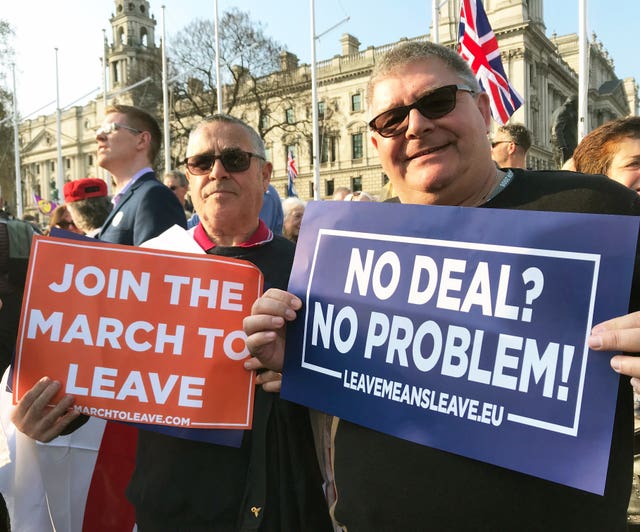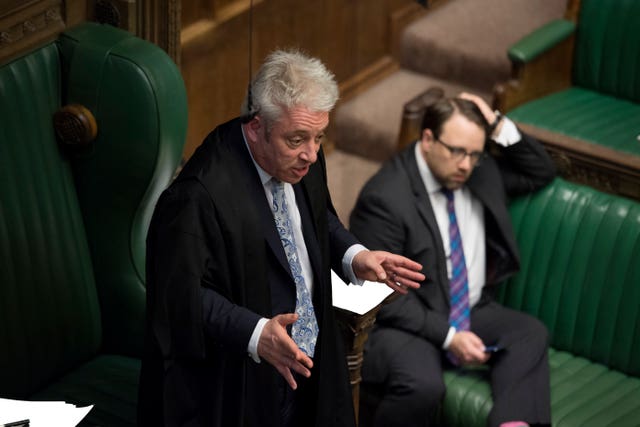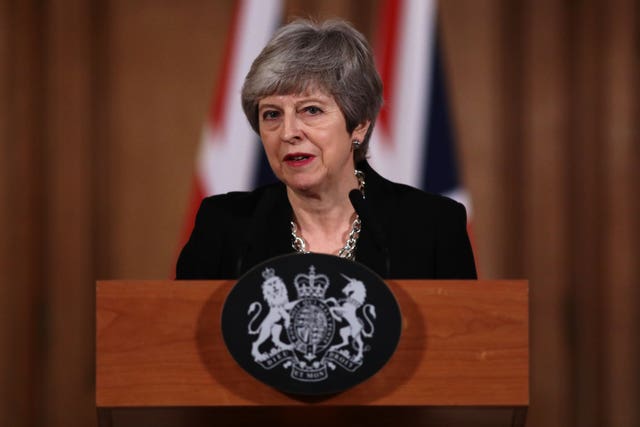Theresa May has said she wants to ask for a further extension to the Brexit process to allow the UK to leave the European Union “in a timely and orderly way”.
But how does that change things, and what will happen next?
– What has the Prime Minister offered?
The Prime Minister offered to hold talks with Labour leader Jeremy Corbyn to agree a plan acceptable to both, which can be put to the House of Commons ahead of the April 10 summit of the European Council.
Mr Corbyn said he would be “very happy” to meet Mrs May in a bid to offer “certainty and security” to the British people. Talks are likely to be held in the coming days.
If both leaders are willing to compromise, they could seek a “softer” Brexit by amending the Political Declaration on the future EU/UK relationship – such as by including a commitment to form a customs union after the UK leaves.
– Is a no-deal Brexit still on the table?
Crashing out of the EU without a deal next week is still possible, but Mrs May has said she wants a further extension to the Brexit process to allow the UK to leave the European Union “in a timely and orderly way”.
She said a Bill to pave the way for departure would have to be in place by May 22 to ensure the UK did not have to take part in European Parliament elections.
Any new proposal would have to accept the Withdrawal Agreement – including its controversial backstop arrangement – and focus on amendments to the Political Declaration on the future EU/UK relationship, she said.
But Mrs May will need EU leaders to unanimously agree to an extension when they meet next week for an emergency summit, if the UK is to avoid a no-deal exit.

– Will there be more indicative votes?
A cross-party group of senior MPs has launched a bid to prevent a no-deal departure by tabling a Bill requiring the Prime Minister to extend the negotiation process beyond April 12.
Following the failure of MPs to unite behind an alternative to Mrs May’s plan on Monday, the group – including Conservative grandee Sir Oliver Letwin and Labour’s Yvette Cooper – aims to pass the bill through the Commons in a single day on Wednesday.
Instead of initiating a third round of indicative votes on Wednesday, when Parliament once more has control over the Commons timetable, Sir Oliver will table a paving motion to allow debate and votes on Ms Cooper’s Bill. An amendment to his motion would set aside April 8 for indicative votes.

– Is Mrs May’s deal dead?
Not quite. Mrs May said any new proposal would have to accept the Withdrawal Agreement, but that the Political Declaration on the future relationship could be altered.
– Could a general election solve the impasse?
The current make-up of the House of Commons has so far proved unable to agree on any Brexit plan so the Prime Minister could be tempted to call a snap election to break the deadlock.
But having promised not to lead the Tories into the scheduled 2022 election and then said she would quit before the next phase of the Brexit process, would her MPs allow her to fight another contest as leader?
And would a new election produce a decisive result to give whoever occupies Number 10 a majority to steer such a divisive issue through Parliament?

– What about a second referendum?
The call for another referendum was defeated by just 12 votes on Monday and campaigners seized on the fact it had more MPs voting in favour than any other option.
